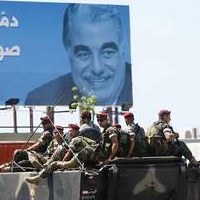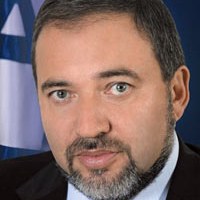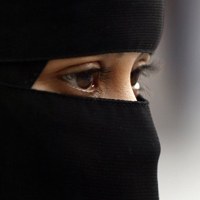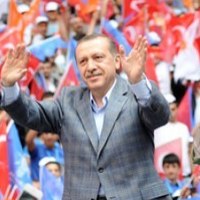![]()
Mon, Sept 26, 2011 | UN TV

Uri Rosenthal, Minister for Foreign Affairs of the Kingdom of the Netherlands (UN Photo/Rick Bajornas)
FM Uri Rosenthal Addresses the General Debate of the 66th Session of the General Assembly
Address by His Excellency Mr. Uri Rosenthal, Minister for Foreign Affairs of the Kingdom of the Netherlands at the General debate of the 66th Session of the General Assembly of the United Nations (New York, 21-24 and 26-30 September 2011).
Netherlands, General Debate, 66th Session
FREEDOM–
A RIGHT FOR EVERYONE
A DUTY FOR GOVERNMENTS
THE MISSION OF THE UNITED NATIONS
Speech by Uri Rosenthal,
Minister of Foreign Affairs of the Netherlands
66th General Assembly of the United Nations,
New York, 26 September 2011
Mr President,
Excellencies,
ladies and gentlemen,[Introduction]
In May I visited Tunisia, the cradle of the revolutions that have spread across the Arab world. I spoke to many people there who told me about their deep yearning for freedom. About the decades their freedom had been suppressed. And about what the revolution meant for their lives. One of them was Essma Ben Hamida, the strong-willed director of a civil society organization active in micro-finance. She said: “If democracy would mean that I lose my rights as a woman, I do not want democracy.” In one sentence, Ms Ben Hamida defined one of the key challenges we face.
The call for freedom and democracy from the streets of the Arab world has brought about great change. It has inspired people around the world to claim their rights. But huge challenges remain. And a severe financial and economic crisis is threatening growth and trade around the globe. It is undermining people’s ability to earn a living and enjoy freedom fully. It is crucial that we manage these developments. The UN and individual governments must support people’s calls for freedom. Freedom is a right for everyone, a duty for governments and the mission of the United Nations.
Freedom must be supported by three key pillars: first security; second democracy and the rule of law; and third prosperity.
[Freedom and the pillar of security]
Lack of security is a fundamental threat to people’s freedom. Providing security is a responsibility of governments and of the international community as a whole.
- In March this year, we rose to the challenge. Security Council Resolution 1973 on Libya was truly historic. It explicitly referred to the international community’s Responsibility to Protect. It highlighted the UN’s indispensable role.
- By contrast, the Council’s failure to reach consensus on Syria has been at great human cost. Everyday we are shocked by new horrific stories. Peaceful demonstrators were carrying a sign this weekend, which read: “Help Syria. It is bleeding.” We need to listen to the people of Syria. We need to stop President Assad’s government from brutally murdering his own citizens in an attempt to crush their legitimate call for freedom. I urge all members of the Security Council to act decisively and agree on targeted sanctions against the regime.
- Freedom and security are key issues in the Middle East Peace Process. If we want peace, we need direct negotiations now, not new resolutions at the UN. The Netherlands endorses the time frame outlined by the Quartet and stands ready to assist where we can. We are a major donor to the Palestinian authority. We fully support the ambition of the Palestinian people to build a viable, democratic and peaceful Palestinian state. But this cannot be viewed separately from the Israeli people’s desire to live in a secure, internationally recognized Jewish state in peace with their neighbors. It is essential that the two parties invest in mutual confidence, refrain from unilateral steps and find a solution together. They should be prepared to make the difficult and painful concessions necessary for the fulfillment of their peoples’ aspirations. I talked with President Abbas. I talked with Prime Minister Netanyahu. I listened carefully to what they had to say. The message is simple and clear: negotiate, negotiate, negotiate.
[Freedom and the pillar of democracy and rule of law]
Democracy and the rule of law are the best guarantees for freedom. But they require hard work. As Francis Fukuyama put it in his latest book, “Liberal democracy is more than majority voting in elections. It is a complex set of institutions that restrain and regularize the exercise of power through law and a system of checks and balances.”[1]
- I admire the tremendous courage that people — young and old — have shown to claim their individual liberty and democratic rights. We must support their efforts to build truly democratic societies governed by the rule of law. The UN should playa leading role by helping with institution-building and developing the rule of law. Slovakia and the Netherlands, for their part, are co-chairing the Community of Democracies’ task force that is supporting Tunisia’s democratic transition.
- The international community should also strongly support internet access that is free and uncensored. This is an essential tool for people to exercise their freedom of expression. We should take great care to make sure people can use it. Countries supporting this cause should unite around the issue.
- As Secretary-General Ban Ki-moon recently said, “Countries do not become fit for democracy — they become fit through democracy.”[2] Democracy means freedom and equal rights for everyone. It provides opportunities to empower women. Women represent fifty per cent of the world’s human capital. It is in every country’s own interest to ensure that women take an active role in society and the economy, as well as in the political process. I am convinced that, in free and fair elections, extremists who want to take away women’s rights will not succeed. Real democracy also means that the rights of religious groups, including Christians, are respected. Society as a whole should be tolerant towards those with other religions and beliefs.
[Freedom and the pillar of prosperity]
Freedom offers the best route to prosperity. The ongoing global economic crisis is affecting prosperity everywhere.
- Enabling free trade is vital to economic recovery. Market access is crucial for private sector development. Breaking down the barriers for trade in agricultural products can galvanize entrepreneurship in the countries where it is needed most. The Arab region in particular should benefit from enhanced export opportunities to the EU. The beauty of well-regulated free trade is that it is not a zero-sum game — it benefits everyone and it is part and parcel of freedom. This is why the WTO Doha Round must succeed. The world should not revert to protectionism. The WTO has an important part to play in preventing this. The EU is also ambitiously negotiating free trade agreements with various partners. Of course, these agreements should fit within the multilateral system.
- Free trade leads to economic growth, which in turn should also benefit the poorest countries. To further support their growth, we should enhance their access to education, vocational training and micro-finance for women and the poor.
[Freedom: the mission of the UN]
Freedom belongs to all of us. Those who have fought to gain their freedom will never give it up. Freedom must be supported through security, democracy and the rule oflaw, and prosperity. We can achieve this through the joint efforts of the UN member states. Since the UN is the international forum where global issues and actors come together, it is here at the UN that we must join forces. We are witnessing international developments unfolding more rapidly than ever before. The UN needs to adapt to maintain its important role in international relations.
- The Security Council should better reflect changing international relations and economic realities. The Netherlands supports a modest enlargement of the Security Council. But with a limit on the right of veto in order not to undermine the effectiveness of the Council’s decision-making process.
- The Netherlands supports the Secretary-General’s drive for budgetary discipline. We have to make careful choices on what to finance and what not to finance. I also urge emerging economies to take their share of responsibility for the sustainability of UN funding.
- The UN has an essential role in fostering the rule of law around the world, as well as in preventative diplomacy and mediation. The Netherlands will play its part, including through the role of The Hague as the international city of peace and justice. The Peace Palace, international courts and legal institutions attest to our long tradition of international law and active role in its practice. A tradition that goes back to Grotius’ early 17th-century Mare Liberum, which laid the foundation for international law.
I would like to congratulate Secretary-General Ban Ki-moon on his re-election. And I call on him to use the overwhelming support for his second term as a mandate to reform the UN. A strong and active UN is essential in a world in which no country can shape the future singlehandedly. To succeed, public support for the UN is crucial. Clear, tangible results are necessary to sustain governments’ commitment to the UN. An effective and efficient UN is in the national interests of all its member states and essential for freedom.
Through our efforts at the UN we can support the calls for freedom around the world. Then, on my next visit to Tunisia, Essma Ben Hamida can hopefully tell me that freedom has brought her both democracy and her rights and empowerment as a woman.
Thank you.
Nederlandse samenvatting (Dutch summary):
Dinsdag, 27 September 2011 | Nieuwsbericht | Ministerie van Buitenlandse Zaken
Minister Rosenthal roept de Veiligheidsraad van de Verenigde Naties op om sancties te treffen tegen het Syrische regime.
‘De resolutie van de Veiligheidsraad in maart tegen Libië was historisch. Maar de Veiligheidsraad slaagt er niet in om consensus te bereiken op Syrië. Dagelijks worden we geschokt door verschrikkelijke verhalen. Afgelopen weekend droegen vreedzame demonstranten een spandoek mee: “Help Syrië. Het land bloedt.” We moeten luisteren naar de bevolking van Syrië. Ik dring er bij alle leden van de Veiligheidsraad op aan om overeenstemming te bereiken op gerichte sancties tegen het regime.’
Rosenthal zei dit in zijn speech tot de Algemene Vergadering in New York, met als thema de wereldwijde roep om vrijheid. Titel van de speech was: Vrijheid – Een recht voor iedereen; een plicht voor regeringen; een opdracht voor de Verenigde Naties.
‘Vrijheid is van ons allemaal, en vereist inspanningen op het gebied van veiligheid, democratie en rechtsstaat ontwikkeling, en welvaart’, aldus Rosenthal.
‘Een democratische samenleving geleid door een solide rechtsstaat is de beste garantie voor vrijheid. Democratie betekent vrijheid en gelijke rechten voor iedereen. Het biedt kansen om de positie van vrouwen te versterken. Democratie betekent ook respect voor de rechten van religieuze groepen, zoals christelijke minderheden.’
Ook onderstreepte Rosenthal het belang van samenwerking in de Verenigde Naties voor vrijheid in de wereld. Des te belangrijker is het dat de VN zich aanpast aan snelle internationale ontwikkelingen. ‘Een effectieve en efficiënte VN is in het nationale belang van alle lidstaten en essentieel voor vrijheid.’
Notes:
[1] Francis Fukuyama, The Origins of Political Order: From Prehuman Times to the French Revolution (New York, 2011).
[2] Ban Ki-moon, message to mark International Democracy Day, New York, 15 September 2011.



 RSS
RSS










FM Uri Rosenthal Addresses the General Debate of the 66th Session of the General Assembly | Middle E http://t.co/M6hpQGdt
FM Uri Rosenthal Addresses the General Debate of the 66th Session of the General Assembly | Middle E http://t.co/M6hpQGdt